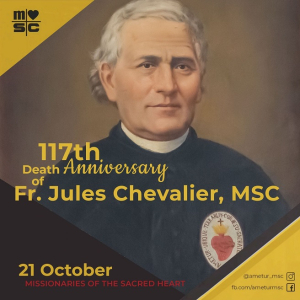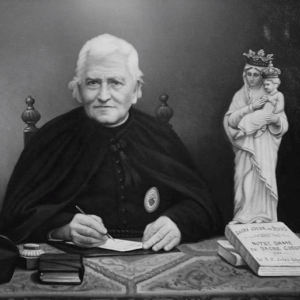Peter MALONE
Smile 2
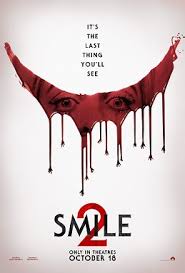
SMILE 2
US, 2024, 128 minutes, Colour.
Naomi Scott, Rosemarie de Witt, Lucas Gage, Miles Gutierrez-Riley, Peter Jacobson, Ray Nicholson.
Directed by Parker Finn.
Smile is a beguiling word. And many smiles themselves are beguiling. But, this is not the kind of smile in the title of this film. Rather, there is that other aspect of a smile, a grin, sometimes a fixed grin which might look immediately cheerful but is ultimately sinister.
In fact, this is the opening for this reviewer’s take on the original Smile. And it applies to this sequel – even more so. Smile was a popular and critical success or a horror/terror film in 2022. Now, fans and critics seem to be united in the view that Smile 2 is even better. One might say that if the two film were submitted for an examination, Smile might be awarded Distinction while Smile 2 gains a Higher Distinction.
But this does not mean that this is a film for every audience. Rather, it presupposes in its audience an interest in horror and terror, some bloodthirsty scenes but much more than this. And the crass language is gratingly incessant.
The original film was written and directed by Parker Finn. With the original success, he obviously feels that he can let himself go – and the film runs 128 minutes. There is a very clever and tantalisingly filmed prologue, headed “six days later”, so the continuity. And the actor, Kyle Gallner, reprises his role to pass on the deadly smile, some kind of evil parasite that takes over a person, their descent into hysteria and hallucinations, into madness, and the compulsion to pass on the parasite. The audience needs to pay attention to this opening sequence to appreciate what is happening later in the film.
But, this is a story that take place in the world of ro ack ‘n’ roll singer, an aura of the Taylor Swift tours and concerts, with a number of song and dance sequences, elaborately staged, and the music videos style. In fact, the central character, Skye Riley, is played by British actress Naomi Scott, in fact a singer who has her own music videos. There is also her show business mother, Rosemarie de Witt, her entourage and supporters. This is her comeback after recovering from addiction, and a car crash which killed her husband (seen in flashbacks and played by Ray Nicholson, reminding audiences of his father, Jack Nicholson’s smile.)
Naomi Scott gives a powerhouse performance, and then some! She is on screen for most of the film, having her normal moments, the musical productions, the personal relationships, the aftermath of her husband’s death, her insecurities, and her being possessed by the smile parasite, leading to all kinds of hallucinations, a descent into violent madness. Naomi Scott is persuasive at every moment.
In many ways, the plot here is a variation on the original film, but taken in different directions, often spectacularly, frighteningly (and, whether it was the editing plus the sound volume, several jump shocks – and the man sitting behind this reviewer jumping, kicking the seat and exclaiming loudly!)
For audiences who like terror of films and their psychological dimensions.
- The popular and critical success of the first film? Terror? Horror? Psychological dimensions?
- The sequel beginning six days later, the prologue, a character in the car, observing, going to the house, the confrontation, the shooting, the drug dealers arriving? The issue of the man possessed by the parasite, the drug dealer observing and being possessed by the parasite?
- The credibility of the plot, the reworking of the original, the issue of the parasite, scientific, psychological, paranormal? The smile, seeing others smile, the victim smiling, and the hallucinations? Unreality, mental disturbance? Violent consequences?
- The story of Skye Riley, her success as a singer, the flashbacks to her earlier career, videos, her black hair and style? The story of the accident, the death of her husband, her injuries and surgery? The background of addiction? Her rehabilitation? Need for pain killers because of her back injury? (And the later flashback of the accident, the hostility between the couple, her engineering the crash, his death and smile?)
- Skye and preparing for the new tour, her age, her career background, success, the number of fans, the Taylor Swift kind of aura? Her appearance, hair style, her appearances in the musical numbers, their style, performance, focusing on her? The music videos style?
- Skye and her relationship with her mother, fostering her career, controlling it, always present? The young assistant and his eagerness? Those associated with productions, the choreographer and his style, patience, Skye and her falling, the hallucination with her leg,, injuries, her moods?
- Skye, going out at night, going to the dealer, the strange encounter, his behaviour, disappearance, her looking for him, reappearance, smashing himself, his death? The parasite in her?
- The style of the hallucinations, the visuals, the past, grotesques? The dreams, her waking hours, lapses in consciousness? The characters, behaviour, eerie? And the number of jump cuts and people jumping in their seats?
- The reconciliation with Gemma, the stories of the past? The phone communications? Gemma’s arrival, the reconciliation, helping, Skye, oversleeping, her mother’s impatience, going to the meeting, her falling?
- The scenes of the fans, the adoration, Skye managing with them, photos? Autographs? The main situation, the lineup, the girl and her smile, the obsessed fan and his threats…?
- Darius, financial support, the request for the function, her being upset, the growing hallucinations, stage, the prompter and its stopping, her improvising, getting more awkward, about herself, the audience, the host on the stage, the confrontation, pushing the old lady and her injuries? The embarrassment, her being hurried away?
- Growing possession, the text message from the friendly nursing aid, their meeting, his proposal, her rejecting, her growing desperation, the hallucinations worsening? Meeting him, the process, the freezer, the plan for her death, the apparition, the confrontation, the needle?
- The hallucinations in her room, her mother arriving, the violent killing of her mother?
- The failure of the operation, the parasite and its taking over, the end and the close-up of Skye and her smile?
- Audiences and terror of films, touches of horror and violence? Psychological implications?
Knox Goes Away/ Assassin's Plan
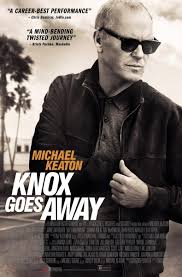
KNOX GOES AWAY/ ASSASSIN’S PLAN
US, 2023, 115 minutes, Colour.
Michael Keaton, James Marsden, Al Pacino, Marcia Gay Harden, Joanna Kulig, Suszy Nakamura, Dennis Dugan.
Directed by Michael Keaton.
A surprisingly interesting human drama. Even more so when we realise that the central character is a long time, very successful professional hitman. And, the film was directed by its star, Michael Keaton, playing the hitman, an intense performance.
The film was released locally with an alternate title, Assassin’s Plan, indicating violent action. While there is some violent action, the assassin’s plan itself is not what we might expect, quite some twist as the film comes to a conclusion.
The original title, Knox Goes Away, is the more telling title. While we see John Knox take on a commission, generally commissions to eliminate drug dealers and other thugs, we see him momentarily hesitant, just trying to remember, the thought going out of his head, a touch of insecurity. He is covering himself, flies to California for a consultation with a neurologist who gives him a sombre diagnosis, a special kind of dementia coming on, not long before it takes over. There are signals throughout the world film as each successive week comes on.
Incipient dementia has a disastrous effect on the hit. The local detectives, led by the tough Emily Ikari (Susie Nakamura) note the inconsistencies at the murder scene, and a lead to John Knox. But, the screenplay becomes even more complex with the arrival of John Knox’s longtime alienated Myles, son, played by James Marsden, with a violent story of his own. It involves a sleazy trafficking dealer and his relationship with Myles’s daughter.
One of the entertaining aspects of the film is the presence of Al Pacino, longtime coordinator of crimes and hits, a perfect Pacino role which he brings to life, Pacino in his early 80s. There is a later guest appearance by Marcia Gaye harden as John Knox is long-suffering wife.
So, there is double interest in the latter part of the film, John Knox’s relationship with his son, the reason for the alienation, his attempts to rectify the situation, set up for the police. The other interest is Knox’s declining memory, increasing failures, the inevitable onset and its repercussions. While we can’t admire Knox as a person, we can have some compassion as we sympathise with the dementia.
A film that Michael Keaton can be proud of.
- Title? The focus on Knox, his career as a hitman, his mental decline? The commercial title, emphasising the assassin, the complexity of the plan for his son?
- Michael Keaton, directing, performing, producing, an effective achievement? And his role as producer for the supporting cast, especially roles for Al Pacino and Marcia Gaye Harden?
- The portrait of John Knox, his background, military training, the connection with the saviour, the unseen controller arranging the hits, the targets, dealers and thugs, his mentioning only two mistake and deaths? His marriage, alienation from his wife, her love for him, his visiting her, the sadness of the visit, his alienation from his son? His time in prison? Jobs, his collaboration with Mauncey their conversations, planning? Success with their jobs?
- The indication of oncoming dementia, gaps, the distractions, unable to remember, saying that he would be away, the flight to the neurosurgeon, the discussions, the specialty of his illness, the limited number of weeks? Audience sympathy for his condition?
- The killing, entry into the apartment, the target, the girl, the shower, killing both? The memory lapse, the mistake with Mauncey, killing him, fixing the situation, the gun in hand?
- The visit to Xavier, the friendship, Xavier’s character, the conversations, arranging the finances, going to the dealer, the money issues, the plan to leave the money to his wife, son, girlfriend?
- The girlfriend, coming once a week, his relationship with her, for years, her wondering about him, seeing the book, the irony of her bringing the thugs, the confrontation, wanting the paintings, the stones, his ability to overcome the thugs? Her fear, and the irony of his telling her she would have got more from his will? The final irony of his bequest of the books to her?
- The detectives, on the scene, the tough chief, her own preoccupations about her ill mother, the experts, fingerprints, the issue of who turned off the shower? The John Knox connection, visiting, interrogations, his going to the station? The discussions, the tests, conclusions, and mystery?
- The alienation from his son, the visit, Myles and his explanation of the situation, his daughter, online, the predator, Myles confronting him, killing him? Asking his father’s help? The story of the alienation? Knox agreeing to help, the discussion with Xavier, the elaborate plan to divert the police, Knox and his notes? The range of the plan, the blood on the shirt, artificial, the clothes in the dumpster, hiding the knife, fingerprints contrived? The setting up of the plan?
- Myles, with his wife and daughter, the confrontation in the restaurant, the fight? His being arrested, interrogated, the death of the trafficker? Going to prison? His father’s visit, the truth that he had reported his father and sent his father to jail?
- The screenplay suggesting weeks passing, Knox getting weaker, forgetting, the search for the stones, his getting lost, having to be rescued?
- The detectives, the analysis of the situation, Knox’s plan working, that he was responsible for the death, their not being able to keep Myles?
- The scene of the wife receiving the money and her reaction? Miyes realising the truth, the money?
- His going to see his father in prison, the farewell, and the final pathos of Knox just gazing into nothingness?
Woman of the Hour
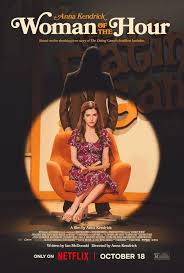
WOMAN OF THE HOUR
US, 2024, 93 minutes, Colour.
Anna Kendrick, Daniel Zovatti, Tony Hale, Nicolette Robinson, Pete Holmes, Autumn Best, Matt Visser, Jedediah Goodacre.
Directed by Anna Kendrick.
Anna Kendrick as established herself as a significant star of many American films. She stars in this one but has been acknowledged strongly because it is her first film as director. She has been generally praised for her work – and encouragement for her to continue as a director.
Audiences will feel disturbed at many moments of this film, sometimes a bit disoriented.
It is based on actual characters and events. And, it is a film about a serial killer. The film introduces him, 1977, charming, a photographer, taking photos in a remote spot of a woman who has just been through some trauma. Then he brutally kills her. In fact, the screenplay is something of a jigsaw puzzle, moving around in time the audience having to do the piecing together. Especially with the time shifts. There is a murder scene from 1971. There is an attempted murder scene from 1979.
But, at the centre, is an event which rather defies belief. It is an episode of the television popular show, The Dating Game. This is the program where three men are concealed from the woman who interrogates them and who has to choose one of them for a date. (There have been favourable comments about the recreation of this event except to say that the murderer was contestant number one rather than in the film, contestant number three!).
Anna Kendrick herself plays a young woman who has come to Los Angeles, experiences a put down at an audition, exploited by her neighbour at the apartment block, given the opportunity for some exposure by being the young woman on The Dating Game. The screenplay is highly satirical of the show, the efforts of the compere, the dimwitted answers of the first contestant, the innuendo and explicit comments of the second contestant, and, the audience knowing who and what the third contestant is, fascinated by his skill in answering the questions and being charming. There is a tense episode after the filming where the young actress is in fear of the contestant.
There is also an episode where a member of the audience recognises contestant number three in connection with the death of a friend, going to the television authorities and being fobbed off, going to the police without their following up. At the end of the film, there is adverse comment on the investigations and how long it took to arrest the killer.
Ultimately, the killer makes a mistaken decision and is arrested.
And the title? A focus on women, in the 1970s, discovering their power and value, put upon by men embodied by the compere and the contestants and their approaches and the violence embodied in the vicious killer.
- Based on actual characters and a true story? The US, the 1970s? The serial killer? The television episode?
- The atmosphere of the 70s, the variety of locations, the desert, small towns, Los Angeles, television studio? Police precincts? The musical score?
- The title? The focus on women? Victims of the serial killer? Women taking a stance? Sheryl symbolic of this? Laura and her interventions?
- The structure, the opening with the murder of the young woman, Rodney, charm, photography, vicious? The moving about in time, the focus on 1978 and the television show, the return to 1971 in the murder of the flight attendant and his interactions with her, the shift to 1979, the encounter with Amy, travelling with her, the attack, her calling the police? The overall effect of the structure, jigsaw pieces, together?
- The story of Rodney, little background, his appearance, charm, photography, the initial murder? 1971, helping with the furniture, charming, turning the tables, vicious? With Amy, seeing her in the streets, flattery, photography, the driving, out into the country, the brutality and tying her up, his not killing her, travelling with her, his going to the toilet, her escape, watching him, phoning the police, his waiting their arrival? The arrest, his denials?
- The portrait of the women, their stories, difficulties, charmed, their fate?
- The introduction to Sheryl, her story, coming to Los Angeles, the sexism of the audition, the producers and the low bar for the auditions, her apartment, her neighbour, his attentions, the outing, his approach, expectations, going home with him, the night, her discussed with herself, the later encounter with the neighbour, his walking past? The phone call, the possibility for The Dating game? The decision to go? Some exposure?
- Audience responded to The Dating Game, the contestants, the audience and their expectations, the woman for the dating? And, of the compere, in charge, sweeping around, criticisms, the manner of the show, his disagreeing with Cheryl and her approach, the aftermath? The members of the staff, the producer picking her on, make-up and hair, support? Joel, being urged to charge, writing alternate questions after the platitudinous questions, the reactions?
- The three contestants, the first and his background, but playing dumb? The second a furniture designer, playing the sexy games and innuendo? Rodney is the third, self-confidence, his answers? Sheryl changing the question is, more intellectual and philosophical, the reactions of the of the two, Rodney and his charm about women and their expectations? Sheryl and her choice of Rodney, the whispering warning from the second contestant?
- The aftermath, walking with Sheryl, the coffee, Sheryl apprehensive, I signal to the waitress, Rodney and his talk, her being uncomfortable, running away from him, in the car, his pursuit?
- Laura and her friend, and the audience, seeing Rodney, the flashbacks to her friend, for friends death? Leaving, knocking over the equipment, the guard and his popping her off? Going to the police, their not listening, her desperation? Her snapping her boyfriend, his return with the flowers, the attempt was the police?
- The tone of the film and its title, the importance for women, women and dignity and rights, men and their attitudes, sexism, violence and brutality?
Neither Day Nor Night
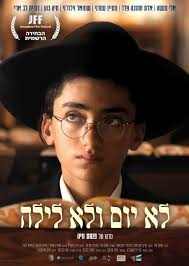
NEITHER DAY NOR NIGHT
Israel, 2023, 90 minutes, Colour.
Eli Manashe.
Directed by Phinehas Veuillet
For Israeli and Jewish audiences, there will be great interest in this portrait of Sephardic Jews living in an Ashkenazi community, difficulties, adapting, challenges, crises. The audiences will be familiar with the traditions, the different cultural backgrounds, clashes and compromises.
However, for non-Jewish audiences, some homework is required, the nature of the Ashkenazi traditions, the prevalence of Ashkenazi Jews, the background of the Sephardic Jews, long history, both groups coming to Israel, settling, majority and minority, cultural and religious differences, clashes.
This film focuses on a Sephardic community amongst the Ashkenazi. The father, devout, is a labourer, married with three children, the oldest studying Yeshiva and preparing for his Bar Mitzvah. Is a keen and student, bespectacled, articulate, of his class, expecting to go to the issue of his choice. However, he discovers that only one Sephardic student is acceptable to the Ashkenazi issues and a boy has been chosen because of his wealthy family.
While there is a long sequence of the studies and the young boys at their desks, studying Talmud, the interpretations, there is also the sequence of the Bar Mitzvah, the separation of the men and women, the men in black and traditional garb, the young boys sitting at the table, the central boy giving a long sermon about Wes becoming adults at this time (with reference to pubic hair which shocks his father). The women are separated, the mother having to observe the ceremony through a hole in the wall, a relative coming less modestly dressed causing some kind of panic.
At home, the father is tentative at times with his wife, she very demanding at home, ordering the children and their sometimes refusing to obey her. And there is the upset at the boy not being accepted, the meeting with the head of the school, generally a sympathetic character encouraging of this central boy, but bowing to the acceptance of the rich boy. Violent moments, and finally a confrontation when the father pushes the head of the school who falls down the steps, is injured, and later dies.
This raises moral dilemmas for the father, sitting in his car, pondering, picking up a student and asking his advice, outlining the situation and the student offering a solution from Moses Maimonedes, enabling the person who pushed the other to continue freely because undetected. However, the husband tells his wife. The relatives of the dead school principal come to ask forgiveness of the couple and the young boy is accepted into the college.
But, the audience is left with the moral dilemma and its effect on the father and his sense of responsibility and guilt.
Memoir of a Snail
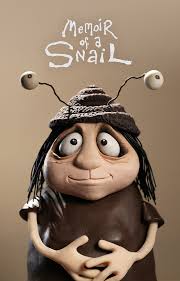
MEMOIR OF A SNAIL
Australia, 2024, 94 minutes, Colour.
Sarah Snook, Kodi Smit-McPhee, Jacki Weaver, Magda Szubanski, Dominique Pinon, Eric Bana, Nick Cave, Adam Elliot, Tony Armstrong, Paul Capsis.
Directed by Adam Elliot.
Quite a striking experience. However, the title might be a bit offputting to some audiences, especially those with a fear of snails, Molluscophobia (seeing ‘snails and slugs as slow, writhing anomalies in a city full of things that flutter, stomp or scuttle’. But, reassuringly, snails here have some heroic status.
Melbourne animator, Adam Elliot, won an Oscar for his short film, Harvey Krumpet. His animation style is stop-motion, and he uses clay models, giving his films a distinctive look, and, combined with his idiosyncratic characters and their stories, something of a unique position in animation. In 2008 he directed Mary and Max (admirably voiced by Toni Collette and Philip Seymour Hoffman), the story of two lonely characters’ correspondence between Melbourne and New York.
Which means that his new film is visually distinctive and admirably voiced. Adam Elliot’s visual world is dark, often misshapen, touches of the sinister, a great deal of sadness, rare moments of joy. And the story is told by Sarah Snook who is able to engage the audience completely.
Actually, the memoir is of Grace Pudel, having experienced some sadness with the death of her good friend Pinky (Jacki Weaver at her best). Grace has a vast number of collectable snails on her shelf and also cultivates actual snails, especially Sylvia to whom she confides her story.
It is a very sad story, Grace’s mother dying in giving birth to herself and to her twin brother, Gilbert (Kodi Smit McPhee). There are some happy moments with their eccentric French father, Dominique Pinon, an animator but who falls on hard times. , t thenhere is the fate of orphans, and foster homes. They might be described as 21st-century Dickensian, on the one hand a kind of hippy, freethinking couple inherit G between race trying to affirm her now and then their escapades. But, worse, Gilbert is sent to Perth to a fundamentalist religious family, and a horrendous mother, Ruth (absolutely ruthless), Magda Szubanski bringing her frighteningly alive. And Gilbert suffers. These sequences of their ferocious moments of criticism of this kind of self-righteous religious cruelty.
Some of the dialogue is very witty. And there are some very happy cultural references, the books that the young Grace and Gilbert read, including Lord of the Flies, and, twice, the family watching with delight The Two Ronnies.
But, back to Pinky. She is a wonderful neighbour, caring for Grace, a surrogate mother, but moving into dementia, trying to warn Grace about the charming Ken (Tony Armstrong) who courts her but has his own terrible secret.
By this stage, Grace finishes telling her sad story to Sylvia. But, while Adam Elliot constantly reminds us that so much of life is sadness and suffering, he is not without hope and by the final credits he he provides Grace with a bit more happiness than we might have anticipated.
- Work of Adam Elliott? His Oscar? Mary and Max? His reputation and awards?
- His visual style, stop motion, the attention to detail, the clay and the characters, the creatures, the settings? Colour tone, darker? The distortions in the faces, the situations, the settings? Distinctive, the effect for the audience? The tone communicated? And the musical score?
- The Australian voice talent and styles?
- The title, the focus on snails, Grace at the opening, a love for the snails, the collectibles, the shelves, the actual snails in the containers and the growth? Her love for Sylvia?
- The episode with Pinky, her appearance and voice, sad, dementia, dying, Grace attending to her? The decision to tell the story?
- Grace and her telling the story to Sylvia, Sarah Snook and her voice-over, the audience being continually attentive to her voice, tone, pathos? The family background, the visuals of the home, Grace being born, the effect on the mother, the birth of Gilbert, the mother’s death? The children growing up, playing, the books and the reading, watching television, The Two Ronnies, their father, his injuries, French, the background of animation, his deterioration?
- The Dickensian touch with the foster homes, the permissive family and their style, free, trendy, sex and partners, but all the awards for Grace and her achievements, the posters? Finally going off to the nudist colony in Sweden? The contrast with the Appleby’s, the religious fundamentalism, Ruth and her domination, husband, the children? The hard work, the religious language, the tyranny? The treatment Gilbert? The letters between Grace and Gilbert? Ultimately too much, Gilbert and the fire, completely destroyed? The severe brothers and the contrast with the friendly little brother, Ben? The critique of fundamentalist Christianity?
- Grace growing up, neglected by the parents, the friendship with Pinky, the kindly neighbour, the conversations? The friendship with Ken, her eating, becoming heavier, Ken and his devotion, courting, marriage, her discovery of his scrapbook, the fact that he was using her, feeding her, his fetish? His being ousted?
- Grace, the years passing, the sales, the letters from Gilbert stopping, her sad memories? The continued support of Pinky? Pinky and her decline, her warnings about Ken? Her positive affirmation of Grace? Her dying, the cry about the potatoes?
- Grace, in the garden, the various vegetables, dawning her about the potatoes, digging, the tin, the letter, the money?
- Grace, getting a hold of herself, slimming down, starting the work on animation, her film, the screening, very few there, Gilbert revealing himself, the happy reconciliation?
- Grace and Gilbert, the sadness of their lives, getting a new opportunity to make something of themselves?
Some post scripts to Jules Chevalier's anniversary, time differences
Some post scripts to Jules Chevalier's anniversary/ time differences
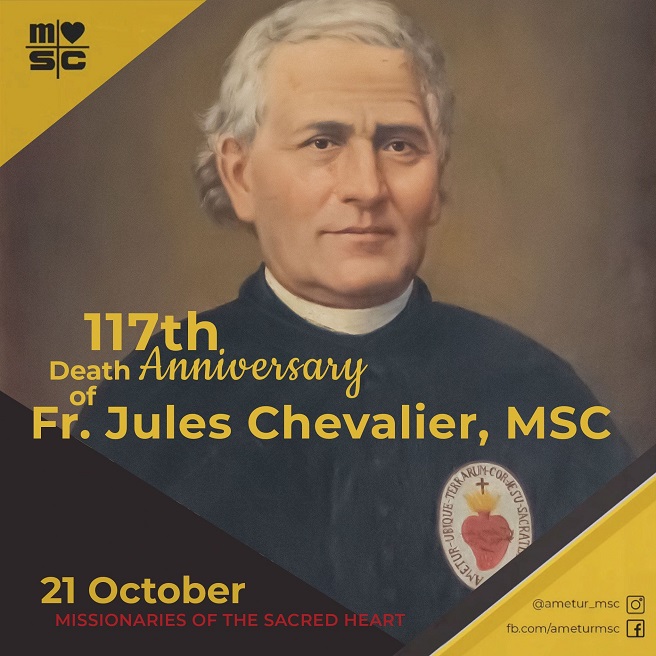
From The MSC General House

From our Vietnamese Community

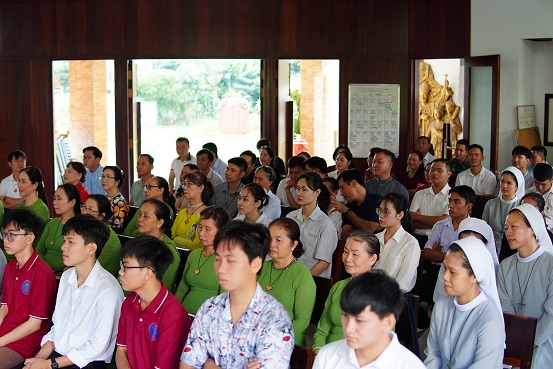

Jules Chevalier Anniversary, 117 Years
Jules Chevalier Anniversary, 117 Years
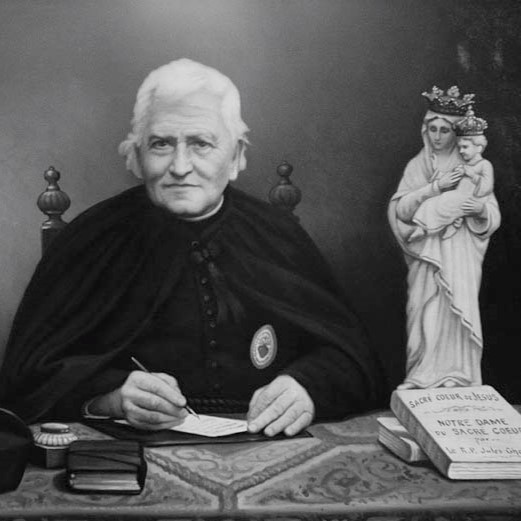
This year we have celebrated 200 years since the birth of Jules Chevalier, 1824.
We will celebrate on December 8 170 years of the foundation of the Society, 1854.
Today we remember the anniversary of Jules Chevalier’s death, 1907.
Fr Piperon’s account:
Towards midday a crisis seemed to indicate the end. Father Meyer then had the community assembled and with them recited the prayers for the dying. From this moment on prayers were said continually at the deathbed of our Father. At 3 o’clock, there was a fresh crisis, no less painful than what had preceded; but the infirmarian’s intervention helped him surmount it. This was the last of his sufferings. After that he remained for more than two hours in great calm, almost motionless, as if in a peaceful sleep. Then, like the flickering out of a flame, he fell peacefully asleep in the Lord. The clock struck 5:30 the evening Angelus was ringing in the parish.
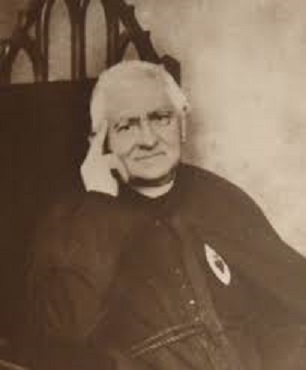
Apprentice, The/ 2024

THE APPRENTICE
US, 2024, 122 minutes, Colour.
Sebastian Stan, Jeremy Strong, Maria Bakalova, Martin Donovan, Catherine McNally, Charlie Carrick, Ben Sullivan, Mark Rendall.
Directed by Ali Abbasi.
Once upon a time, there was a young American, ambitious, a touch tentative… And this was in 1974-1984. And the young American, from age 28 to 38, was Donald Trump. And, as they say, this is the beginning of his story. But, of course, we know what happened in years to come. And, as The Apprentice is released in mid-October 2024, there is an atmosphere of apprehension of what is to come on election day.
For audiences observing, this is a very interesting film. The first comment should be in praise of Sebastian Stan for his impersonation of Trump, the look, the hair, the swagger, the various tics, the tone of voice, his increasing apprehension about his weight, all looking authentic. The screenplay, by Gabriel Sherman (who wrote the very telling television series on Fox News’ Roger Ailes, played by Russell Crowe, the accusations of sexual harassment and his ousting by Rupert Murdoch, The Loudest Voice) is strong enough, along with Stan’s performance, to show how Trump “developed” in the times of Nixon’s downfall (no mention of Jimmy Carter) to the time of Reagan’s re-election. Trump had moved from huge ambitions through politicking and power contacts and manoeuvres to the achievement of the Trump Tower and casinos in Atlantic City.
But, the key figure in this film is that of notorious lawyer and power manager, Roy Cohn, a most telling performance from Jeremy Strong (Succession). When Trump approached Cohn tentatively for advice, Cohn took a shine to him, becoming something of a patron, advice, fixing, manipulation, and instilling principles that, repeated at the end of this film, Trump incorporated into his managing, attack, attack, attack, say what you like about your opponent, never admit defeat.
Another interesting character in the film is his father, Fred, played by Martin Donovan, ruthlessly relentless, condemning of his older son, Fred, an airline pilot who cannot live up to expectations, his demands on Donald, not believing in him and then shocked by the successful results of Roy Cohn’s interventions.
And, there are memories of Cohn’s interventions in the McCarthy era, the Rosenbergs going to the electric chair (and a moment of dialogue where Cohn rejects the appeal against the death penalty for a mother and t declareshat that is no excuse for betrayal of country and therefore she should be executed). There is his closeted homosexuality, his denials, a scene of a birthday party hosted by Trump in Florida and Cohn’s disillusionment with his protégé. And his television denial that he had AIDS, was dying of liver cancer.
There are some moments when Trump might have been a touch humane, the attraction to the celebrated model, Ivana (Maria Bakalova), declaring his love for her, the marriage, the birth of Donald Jr – but, he grows tired of her, wanting to discard her, sexually aggressive, finding new partners. With his subsequent career and court cases with women, it is amazing how his followers, even fundamentalist Christians, can be so forgiving and dismissive of his moral misbehaviour.
But, the focus of the film is on building, development, clashes with the city of New York, with Mayor ced Loch, offering financial investment and incentives, manipulating for tax breaks, ignoring of the protests of ordinary people evicted, losing jobs…
Which means that The Apprentice will be viewed in partisan ways by those who believe in Donald Trump and by those who remember his presidency and dread a further presidency.
- Donald Trump? Audience responses? His loyal followers? His critics? American response? Outside the US?
- The reality of Donald Trump, his family, money deals, real estate, achievements, television show, The Art of the Deal, Ivana, the marriage, his son? 1974-1984?
- The facts of his family, his father coming to America, success, business? Fred as the older son, the pilot, disappointment to his father, the family dinner, his death? Donald, following his father’s footsteps, interest in real estate, building the Trump Tower, New York, Atlantic City? Success? Marriage and courtship?
- The audience knowing the aftermath of 1984, 30 years later and the presidency, the next election and the uprising on January 6? His campaigning in 2024?
- 1974-1984, the period, Nixon and the interviews, his resignation, Watergate? No mention of Jimmy Carter and his presidency? The acclaim for Ronald Reagan, the Reagan era? New York politics, riots, poverty, building, investment in taxes and tax breaks, it, Mayor Ed Koch?
- The performance and impersonation by Sebastian Stan? Look, manner, idiosyncrasies, touching the hair, Trump in his 20s, his look, ageing over the 10 years, becoming larger (and the issue and visuals of his surgery), his hair? Beginning more tentatively, the impact of his father, approaching Roy Cohn, the gradual change, success?
- Audience response to Roy Cohn, knowledge about him, his reputation, the McCarthy era, his comment on the execution of the Rosenbergs and American loyalty? Stating that America was his client? Tough, closet homosexual, his companion, Russell, relationships with men? His social status, legal talent, his skills, advice, deals and manipulation, behind the scenes?
- Donald Trump approaching Roy Cohn, not immediately accepted, Cohn’s invitation at the meal, accepting Trump, giving him his approval, a kind of surrogate son (and the implicit gay tones)? At the table, the gangsters, relying on Russell? The various meetings, his skills, in court, issues of taxes and investment, his taping people, exercising blackmail, with New York City officials and forcing decisions? The issue of the Commodore, Trump Tower, meetings and protests, the philosophy of investment, Trump becoming more confident?
- Fred Trump, patriarch, success in business, relationship with his wife, her strong stances? The family dinner, the taunting of Fred? Spurning the pilot? Fred, approaching Donald, giving up the airline, ill, his death? The family morning? The Trump going to the hearings, not confident in Donald, surprise at Cohn’s success? Going older, senility?
- Ivana, model, her girlfriends, attractive, her work, the encounters with Trump, his falling in love, the issue of the prenuptial arrangement, Cohn’s insistence, her almost giving up? Trump persuading her, the wedding in the celebration? Appearing in public? Trump falling out of love, the rape sequence, her account, the later denial? Appearing in public, but the hostility? Her son and trumps devotion?
- The parties, the clubs? Trump naive, especially about Cohn? Seeing the gay activities and his shock?
- Cohn and his asking for Russell and help, Trump agreeing, but avoiding Cohn, ousting Russell, Russell’s death? The issue of AIDS? Inviting Cohn to Florida, the birthday party, the gift of the cufflinks, Ivana explaining they were fake, Cohn and his speech, disillusionment, the cake? Cohn and the TV interviewer, the denial of being gay, liver cancer? His death?
- The end, Cohn’s principles of attack, denigrate, never admit failure? The subsequent story of Donald Trump?
High & Low - John Galliano
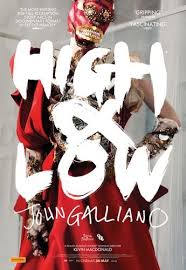
HIGH & LOW – JOHN GALLIANO
UK, 2023, 116 minutes, Colour.
Directed by Kevin Macdonald.
John Galliano was a successful fashion designer in Britain and across in France at the end of the 20th century and the 2000s. He was well known in the fashion world but, perhaps, not so well beyond it.
Kevin MacDdonald is an Oscar-winning documentary maker with subjects ranging from the attack on the Israeli athletes in Munich, 1972, to interviews with the Klinko brothers from the Ukraine in 2022. He has also directed a number of successful feature films, most especially, The Last King of Scotland.
The title indicates the approach that Macdonald has taken to his documentary. However, it does begin with the occasion of Galliano’s fall from grace, eliciting hostility, losing his contracts in the fashion world. Drunk, drugs, sitting in a restaurant, gratuitously insulting some patrons, outbursts of vicious and ignorant anti-Semitic insults. This was the crisis point of his life.
Then the documentary goes back to illustrate the high points of his life, his Spanish and British parents, born in Gibraltar, moving to South London, his entry into the world of fashion, his skill with fabrics, elaborate design. Contracts in England, awards, connections and France and Dior.
The advantage of the film is that throughout there is an interview with Galliano himself, 2022, his falling 11 years, able to talk about his past, give insights into his life and career, his sexual orientation. He is also interviewed about the anti-Semitic incident (or several of them), the condemnation, the cutting of contracts, the possibilities for rehabilitation, his asking forgiveness and receiving some, programs for his learning more about Judaism…
After more than a decade of lows, Kate Moss, who supports him, asks into design her wedding dress and there is some rehabilitation, visiting Dior again…
Kevin Macdonald uses a cinema visual metaphor for the rise and fall of Galliano, throughout the film including clips from Abel Gance’s 1927 epic, Napoleon, scenes and subtitled dialogue reflecting something of Galliano’s experiences.
Certainly a must for audiences familiar with the fashion world. Interesting and intriguing for the wider audience.
- John Galliano? Audience knowledge of him? The world of fashion? His racist case and notoriety and consequences?
- Kevin MacDonald, his career, documentaries and awards?
- The portrait of Galliano, the title of high and low, success, the crisis, years of low experiences?
- The use of Abel gangsters film, Napoleon, the parallel of Napoleon and Galliano, the various sequences from the film, their insertion throughout the film, symbolic commentary?
- The film opening with the case, captured on video, Galliano drunk, the clients at the restaurant, his insults, racist, anti-Semitic? The issue of how many cases there were and Galliano’s memory and the visual evidence? His arrest, trials, fines, rehabilitation? The consequences with his loss of work?
- The director interviewing Galliano in 2022? His age, speaking to screen, genuine, personality and style, camp? The interview recurring throughout the film, his talk, honesty, issues of his memory, the retracing of his career up to the event? The high of the title?
- Portrait and biography: Gibraltar, parents, Spanish and British, his consciousness earlier being gay, the move to South London, his interest in fashion, style, the portrait of his working career, Steve Robinson and work with him, the impact of Steve Robinson’s death? The many models? His talent, success, deal, in France, testimony of Kate Moss?
- O of the title, being disowned, the therapy, alcoholic, drugs? The issue of the rabbis? The comment of the concentration camp survivor not forgiving the Nazis because they did not ask for forgiveness, but Galliano apologising and asking for forgiveness? The different programs, Michael, his education? Drying out, drive for 11 years? The various steps, the range of his reading, forgiveness? The effect?
- Kate Moss, the invitation to design her wedding dress, her support, the beginning of his rehabilitation?
- Gradual employment, the passing of the years, Dior and other bosses, Jewish bosses being interviewed, the reactions, some final forgiveness?
- The scenes with those who are insulted in the restaurant, there are interviews, the court cases, their assessment of the issues, their wanting apologies, Galliano not being able to remember?
- The portrait of talent and influence, his fashion style and achievement and awards, his influence? But also rehabilitation and the possibility of a new phase of life and success?
Vanishing Soldier, The
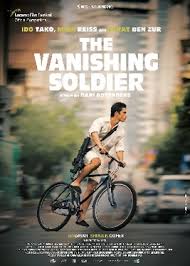
THE VANISHING SOLDIER
Israel, 2023, 95 minutes, Colour.
Ido Tako, Mika Reiss, Efrat Ben Tzur.
Directed by Dani Rosenberg.
The Vanishing Soldier had its premiere in Locarno on August 5, 2023, two months before the Hamas attack on Israel and the consequent war in Gaza and the extension to Lebanon during 2024. So, while this is a pre-war story, it certainly has its moments relevant to 2024.
The action takes place over one day. We see a group of occupying Israeli soldiers, their going into action, but one of them, Shlomo (Ido Tako) hesitating, staying behind, literally running away, seeing bodies lying dead on the streets, a Palestinian of woman raising her hand in surrender, his taking an abandoned Palestinian car and driving to the border, running along the barbed wire, crossing back into Israel, running to his home. The audience wonders about his motivations, fear, the battles, his age, 18, his family, a relationship… And, we soon discover, all of the above.
As the film moves on, television news is seen and heard in the background, remarkably like what was heard in 2024. However, there is a significant twist. With Shlomo’s disappearance, the interpretation is that he has been kidnapped by Hamas and needs to be rescued, action escalating, public opinion, condemnation of the enemy.
But, on the whole, Shlomo’s day is very mundane, meeting his girlfriend who is cooking at a restaurant, about to move to Canada which he does not want. He has a swim in the Mediterranean, greeted by a couple who is to his military service – and then he steals their clothes and phone and their later chasing and accosting him. He is a voracious and intense eater, quite a number of times during the day. He visits his grandmother, has a phone call from his mother and his being alerted that the military are searching for him.
Gradually, he realises the military consequences of his desertion. His mother urges him to go back. There is a screenplay trick before the end, one of those what might have been sequences. However, the reality is lament for an 18-year-old, something of a spoilt 18-year-old, facing a serious situation, refusing to face it…
- Topical? Israel-Gaza 2023? The aftermath of the invasion? World perceptions?
- The setting, northern Gaza, the border, Tel Aviv? Atmosphere, the ruins in Gaza, the barbed wire, the border, the installations, homes, apartments, restaurants, Tel Aviv streets? Hospital? The musical score?
- The action taking place over one day? The drama, the personal story, the consequences, the interpretation as a kidnapping, the escalation of war activities?
- The opening, the isolated soldiers, cooking, snipers, rousing to action, the men going out, Shlomo, his decision, running away, continuing to run, his kit and gun, the dead in the streets, the Palestinian woman raising her hands, the car, the border, the barbed wire, arriving home, his hunger and eating? The arrival of the military?
- Getting out of the house, the bike, riding through the city, going to the beach, the couple and their admiration, th swimming el, his taking the clothes, phone, money? Going to visit Shari, at the restaurant, the bond, her going to Canada, his wanting her to stay, the meal, voracious eating?
- Going to his grandmother, her help, having a rest, his mother’s phone call, his father, going to the hospital, the phone call from the military, his telling her the truth, her reactions, wanting to go back, then protective? The arrival of the military, Shlomo observing, his promising to go back?
- The encounter with the couple, their pursuit of him, the attack in the street, taking the clothes?
- At home, his father’s uniform, his father’s vehicle, the military pursuit?
- The background of Israel-Gaza and the Palestinians? Television news, the information, Shlomo watching with the people in the club? The growing information about his being kidnapped, the escalation of activities?
- Going home, sleep, the screenplay trick, at the window, returning, acclaimed, his mother’s joy?
- The reality, the car, the distraction, the crash? On the road, standing in front of the van, the crash, the driver bashing him on the street, the medics arriving, his being carried into the hospital?
- His future, in himself, Shari disappearing, relationship with his parents, desertion, military consequences, only aged 18?
